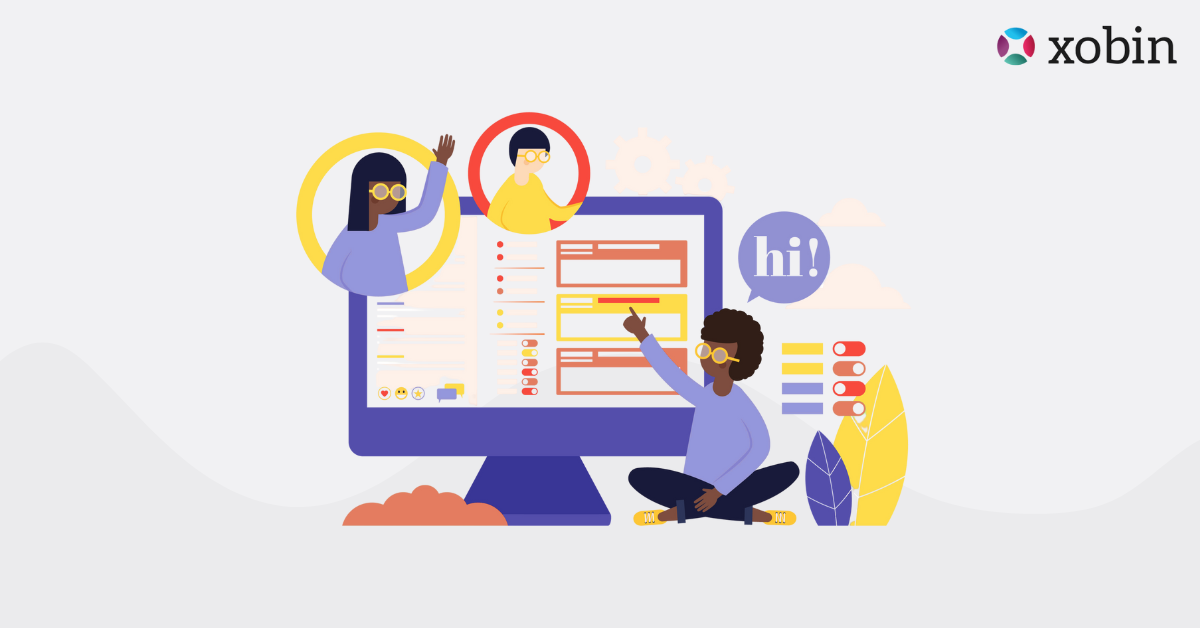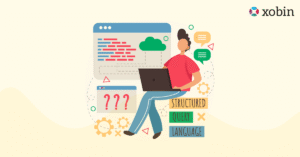In today’s fast-changing business world, hiring the right talent matters more than ever. For top HR leaders, understanding the latest innovations in recruitment technology is key to gaining a competitive edge. One such groundbreaking technology is Computer Adaptive Testing (CAT), which is transforming how organizations evaluate candidates.
Table of Contents
So, what is computer adaptive testing in talent assessments? In simple terms, it’s a smart testing method that adjusts to a candidate’s skill level in real-time. This makes the process quicker, more accurate, and more effective than standard tests. As a result, companies can assess talent better, cut down on hiring bias, and speed up recruitment decisions.
In this comprehensive guide, we’ll explore the fundamentals of computer adaptive testing, how it works, its benefits for HR teams, and why it should be an essential part of your hiring strategy.
TL;DR – Key Takeaway!
- Computer adaptive testing changes question difficulty instantly based on how a candidate responds, making hiring smarter and faster.
- It ensures faster, more accurate, and fairer evaluations than traditional tests.
- Adaptive tests shorten test length, ease candidate stress, and boost engagement.
- Adaptive testing minimizes hiring bias by objectively assessing actual skills, not resumes.
- HR leaders gain actionable insights, reduce time-to-hire, and improve candidate experience.
- These assessments help make stronger hiring decisions and bring in higher-quality talent.
- Xobin’s AI-powered talent assessment platform offers customizable, fair, and scalable adaptive skill assessments to hire top talent confidently.
- Ideal for companies handling large hiring volumes while maintaining accuracy and personalization.
What is Computer Adaptive Testing in Recruitment?
Computer adaptive testing uses smart technology that offers a smart way to assess candidates by adjusting questions based on their answers. This method doesn’t follow the one-size-fits-all model of traditional tests. Instead, it changes the difficulty and content in real-time, depending on how the test-taker responds.
Here’s how it works:
- If a candidate answers a question correctly, the next one is a bit more difficult.
- If the answer is wrong, the test presents an easier question.
As a result, this approach creates a more personalized and accurate testing experience that reflects a candidate’s true skills.
In recruitment, this type of adaptive testing helps hiring teams go beyond standard scoring. It measures real abilities in relation to job needs. This leads to quicker hiring decisions and makes it easier to spot top talent with confidence.
 Curious about how AI is changing the future of candidate assessment?
Check out our latest blog on
10 Amazing AI Upgrades that Xobin Brings for Online Assessments
to reshape enterprise hiring.
Curious about how AI is changing the future of candidate assessment?
Check out our latest blog on
10 Amazing AI Upgrades that Xobin Brings for Online Assessments
to reshape enterprise hiring.
How Does Computer Adaptive Testing Improve Candidate Evaluation?
Traditional tests often miss the mark because they treat all candidates equally, regardless of their skills or experience level. This approach can lead to several issues: some candidates feel frustrated by questions that are too hard, while others waste time on questions that are too easy.
Adaptive assessments for hiring solve this by providing a customized candidate experience, which significantly enhances evaluation quality.
Key Improvements in Candidate Evaluation
- Precision in Measuring Skills: By adapting question difficulty, adaptive skill assessments pinpoint candidate strengths and weaknesses more accurately.
- Reduced Test Anxiety: Candidates face questions suited to their level, leading to a more positive and less stressful testing experience.
- Shorter Testing Time: Since the test zeroes in on the candidate’s ability quickly, candidates spend less time answering irrelevant or redundant questions.
- Better Candidate Engagement: Personalized tests increase candidate satisfaction and encourage completion, improving the overall quality of your talent pool.
Computer Adaptive Test Example Use Case
Imagine a company that uses computer adaptive testing to hire software developers. Instead of every candidate answering the same coding questions, the system adjusts complexity based on responses, ensuring that only truly skilled developers reach the final stage. This leads to more qualified hires and a streamlined recruitment funnel.
Why Should HR Teams Use Adaptive Testing?
For HR leaders and talent acquisition professionals, the question is clear: why invest in adaptive testing when traditional assessments have served the industry for decades?
The answer lies in efficiency, accuracy, and fairness.
Enhanced Hiring Efficiency
Adaptive testing accelerates the recruitment process by reducing test duration and focusing on relevant candidate skills. HR teams spend less time sifting through unqualified candidates, enabling faster shortlisting and onboarding.
Scalability Across Roles
Whether you’re hiring a junior accountant or a senior engineer, computer adaptive test technology can scale to fit the role’s complexity. It evaluates both foundational and advanced skills in one system.
Streamline Large Recruitment Drives
For enterprises managing high volumes of applications, adaptive testing software allows efficient handling of large candidate pools without compromising quality.
Data-Driven Decisions
Gone are the days of gut-feel hiring. Adaptive assessments for hiring provide consistent, reliable metrics for comparing candidates fairly and objectively.
Higher Assessment Accuracy
Unlike one-size-fits-all exams, adaptive assessments for recruitment dynamically adjust to each candidate, delivering more accurate and granular data. This insight helps hiring managers make informed decisions supported by real-time analytics.
Faster Time-to-Hire
Traditional assessments can be lengthy and inefficient. Smart hiring tests powered by CAT reduce the time from screening to offer by delivering quick, actionable results.
Improved Employer Branding
Candidates appreciate personalized assessments that showcase their strengths. In addition, offering a smooth and engaging test experience improves your employer brand and increases the chances of offer acceptance.
Optimized Resource Allocation
HR teams can automate large parts of the evaluation process. This frees up valuable recruiter hours and lets your team focus on high-value activities like strategic interviews and onboarding.
Is Computer Adaptive Testing More Accurate Than Traditional Tests?
Yes, one of the main benefits of computer adaptive testing is that it offers greater accuracy than traditional static tests. Here’s why:
Dynamic Difficulty Adjustment
Traditional tests use a fixed set of questions. This can under-challenge high performers and overwhelm less-prepared candidates. In contrast, adaptive tests offer a balanced, tailored experience.
Elimination of Test Fatigue
In long-form tests, candidates often lose concentration toward the end. CAT shortens the test to only what’s necessary to gauge ability, minimizing fatigue and maximizing performance.
High Reliability Scores
Studies have consistently shown that adaptive assessments result in higher test reliability. They give hiring teams confidence that their hiring decisions are grounded in accurate data.
Reduced Cheating Potential
Since no two candidates receive the same question set, it’s harder to predict or share answers. This improves test integrity and ensures a more authentic evaluation.
Continuous Ability Estimation
The algorithm constantly updates its estimation of candidate ability, refining results as the test progresses.
Did You Know?
Studies show that adaptive testing provides more reliable data on a candidate’s abilities, allowing HR leaders to identify top talent and predict on-the-job performance confidently.
Can Adaptive Testing Help Reduce Hiring Bias?
Absolutely. One of the most powerful applications of computer adaptive testing is its potential to mitigate unconscious bias and level the playing field for all applicants. Here’s how:
1. Objective Scoring
Computer adaptive testing relies on algorithms, not human interpretation, to evaluate candidate responses. This standardizes the scoring process and removes potential biases.
2. Consistent Evaluation Framework
All candidates are assessed using the same core evaluation logic, even if their test questions vary. This ensures consistency while still being personalized.
3. Focus on Skill, Not Resume
By using adaptive testing at the start of the hiring funnel, organizations can screen candidates based on actual skills, not just educational background or previous employers.
4. Accessible and Inclusive
Adaptive skill assessments can be designed to accommodate a variety of learning and cognitive styles. This inclusivity improves diversity outcomes in hiring.
Why Xobin Is the Best Partner for Adaptive Testing
Choosing the right partner for computer adaptive testing is crucial. At Xobin, we go beyond assessments. We deliver a platform built for strategic hiring success.
Here’s what sets us apart:
- Easily create customizable tests tailored to match your specific job roles.
- AI-powered personalization to adapt tests in real-time.
- Access role-specific test libraries designed for 3400+ skills and 2500+ job roles.
- Scalable platform to manage thousands of applicants seamlessly.
- Bias Mitigation Tools to promote diversity with objective, data-backed hiring.
- Showcase your company’s values through white-labeled custom branding.
- Advanced analytics to help you track, measure, and optimize your hiring process.
- End-to-end ATS integration to streamline recruitment from start to finish.
Xobin’s adaptive assessment engine ensures your candidates are evaluated fairly and efficiently, helping you hire top performers at scale. Schedule a personalized demo and step confidently into the future with Xobin today!
FAQs
What industries benefit most from computer adaptive testing?
Industries with high-volume recruitment or specialized skill requirements, such as IT, finance, and healthcare, see significant gains from adaptive testing.
Is adaptive testing suitable for entry-level candidates?
Yes. Adaptive assessments are flexible and can be designed for all experience levels, ensuring accurate measurement across the board.
Can adaptive tests assess both technical and soft skills?
Absolutely. Adaptive testing can be tailored to evaluate a wide range of skills, from coding to communication.
Is adaptive testing more expensive than traditional testing?
While the technology is more advanced, it saves money in the long run by reducing hiring cycles and improving hire quality.






